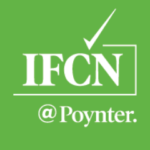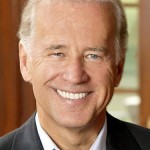This blog post will clear my spindle of two recent issues connected to the International Fact-Checking Network.
If you sign and the IFCN does not verify, then you did not sign
A recent update to the IFCN’s page of principles and verified signatories to its statement of principles offended our sense of logic.
The IFCN encourages fact-checking organizations to subscribe to its principles and, for a fee, the subscribing party may apply for verified status:
This code of principles was launched on Sep. 15, 2016. On Jan. 17, 2017, the IFCN introduced an application and vetting process. This followed the announcement by Facebook that being a signatory to this code is a minimum condition for being accepted as a third-party fact-checker on the social network (more about that in this Q&A) and a consultation among existing signatories.Verified signatories are evaluated by an independent journalism expert from a pool of external assessors, on the basis of their respect of the five principles through the process linked above at the date of application.
On a separate page, the IFCN states that organizations achieving verified status may post an IFCN badge on their websites proclaiming their verified status.
But what if an organization signs the principles and follows the principles but never applies for verified status? Did that organization sign the principles? The IFCN says no, right on its page of principles:
Any other organization that holds the IFCN’s badge on its page and is not listed above is NOT a signatory to the code of principles.
We suggested to the IFCN that it should amend its statement to say that such an organization would not count as a verified signatory to the code of principles. The IFCN literally cannot stop anybody from signing its statement of principles, and (pardon the tautology) if an organization has signed the statement of principles then that organization has signed the statement of principles. An assertion to the contrary by the IFCN simply counts as wrong. But the IFCN can legitimately set standards for the “verified” status it confers and declare some signatories unverified.
Perhaps it’s pedantic of us to suppose that words matter.
Verification? They’re doing it wrong
We noted with a post from Dec. 11, 2017 that the IFCN’s credibility rests on a serious attempt to ensure that “verified” signatories to its statement of principles do, in fact, follow the principles.
The review of the application from the Daily Caller’s “Check Your Fact” website offers another example of poor verification methods.
Applicants agree to post writer biographies as part of a commitment to transparency:
All authors and key actors behind the fact-checking project must be clearly listed on the site and their biographies indicated.
Check Your Fact sent the IFCN’s independent reviewer, Michael W. Wagner, a URL linking to its staff list and biographies. Wagner verified the organization’s compliance with the requirement.
The problem? There’s no clear way to link to the list from the Check Your Fact website.
From the main page you can click “About Us,” which takes you here (no staff list or biographies).
The “About Us” page has no outbound links. Links for “Privacy Policy,” “Terms of Service” and “Contact” likewise feature no effective means of accessing the staff list or biographies.
The “Sitemap” button looked promising. But the link led to a 404 error (page not found).
In our book, if you can’t easily find it from the main page then it doesn’t count. The same goes for PolitiFact’s supposedly transparent list of corrected stories. The ordinary reader would simply not notice any such thing listed on PolitiFact’s main page.The same scenario plays out for many of the “verified” signatories of the IFCN’s code of principles.
Is that good enough to warrant IFCN verification?
Don’t get us started on open and honest corrections.
What to do about this
Whether well-meaning or not, the International Fact-Checking Network so far fails as a watchdog over fact checkers. We have plans in the works to launch a new organization to help hold the others accountable. We’ll be announcing ways our readers can help.



